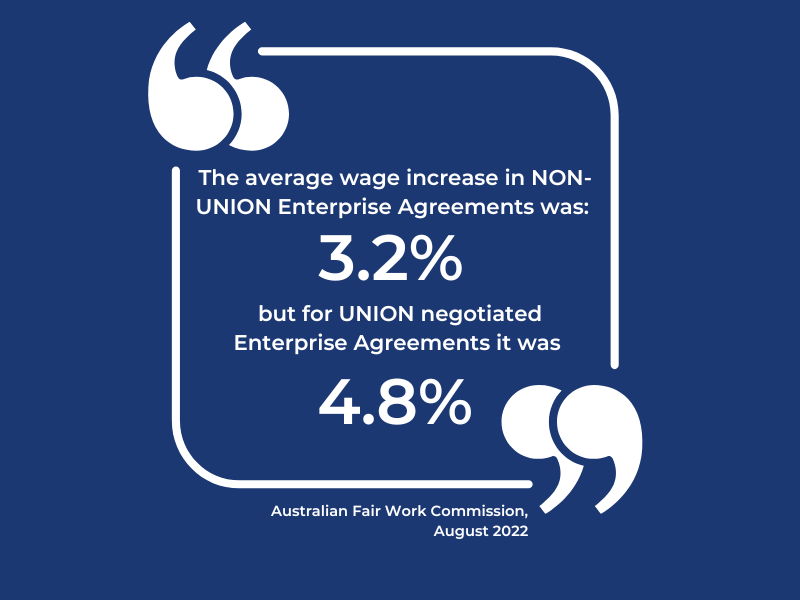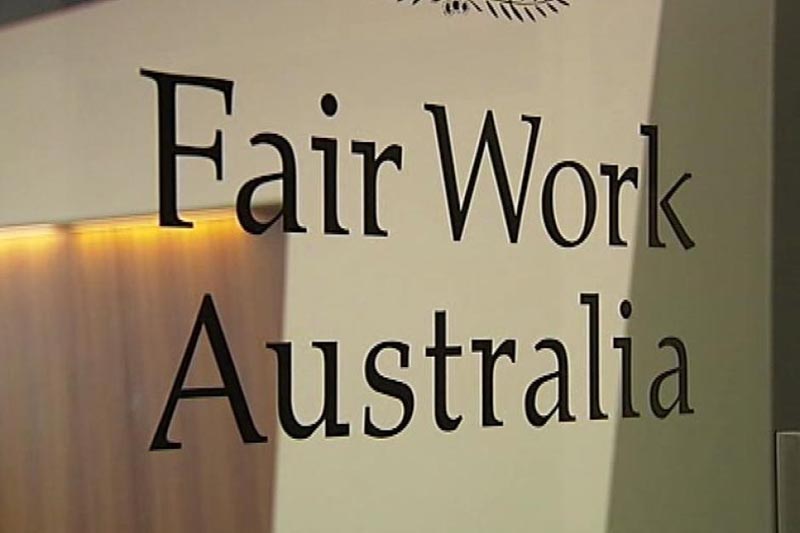
- Join Us
- About Us
- Benefits
- Campaigns
- News
- Contact Us
- USU Shop
Select Page
Enterprise Bargaining and you!

Enterprise Bargaining is a form of collective bargaining where workers and their employer come together to negotiate wages and conditions for them in their workplace.
It refers to the process of collective negotiations which is generally conducted between the employer, employees, and their bargaining representatives with the goal of making an Enterprise Agreement or (EA).
Enterprise Bargaining benefits employees as they can come together to collectively negotiate wages and conditions of employment to benefit them.
Traditionally Union negotiated Enterprise Agreements deliver wages and conditions significantly above those of non-union Enterprise Agreements and recent data collected from the Australian Fair Work Commission in August 2022, showed that the average wage increase in non-union Enterprise Agreements was 3.2% but for Union negotiated Enterprise Agreements it was 4.8%.
The Fair Work Act 2009 has an established set of clear rules and obligations about how the Enterprise Bargaining process occurs, including rules about bargaining, what must be included in an agreement, what cannot be included in an agreement, how the agreement is made, and the steps towards how the agreement is approved.
An enterprise agreement must contain permitted matters and there are also terms that must be included in the agreement such as a clause that requires and employer to consult with employees around any significant changes in the workplace. Equally there are also terms that cannot be included in the agreement such as any discriminatory terms.


Enterprise agreements are negotiated between the employer and employees. The employees generally nominate Bargaining representatives to represent them in negotiations. A Bargaining Representative is a person or organisation that each party to the enterprise agreement may appoint to represent them during the bargaining process. This can also include a union that has union members at the workplace.
The Representatives all must abide to a set of rules outlined in the Fair Work Act when in negotiations. this is to ensure that the negotiations are conducted fairly and appropriately. This is called Good Faith Bargaining.
For more information regarding the Enterprise Bargaining Process, you can click here to obtain a complimentary flyer.
Cost of living – are your wages leaving you behind?
If you said YES to any or all these questions you may be in cost-of-living stress.
The ACTU have said that real wages have gone backwards in the past 10 years and are not keeping up with the cost of living. The ACTU say that over 10 years Australians are around $10,000 worse off due to wages remaining stagnant. The average worker went backwards by $800 in the year 2021.
This is no wonder everything feels so hard right now!

The USU is your union that will stand by you to demand a fair day pay for a fair day’s work. We don’t want to see you continue to struggle and we understand that your struggle is real!
Now is the time to come together to fight for better pay and conditions.
If you are not a union member, now is the time to join. The more members the stronger and louder our voice becomes, and it really needs to be heard now.
Remember union dues are tax deductible.
Contact the USU and we will put you in touch with your organiser for more information.
If you are not a member and wish to join, you can do so by going to our website HERE or contact our Help Line on 1300 136 604 or speak to your Union Delegate